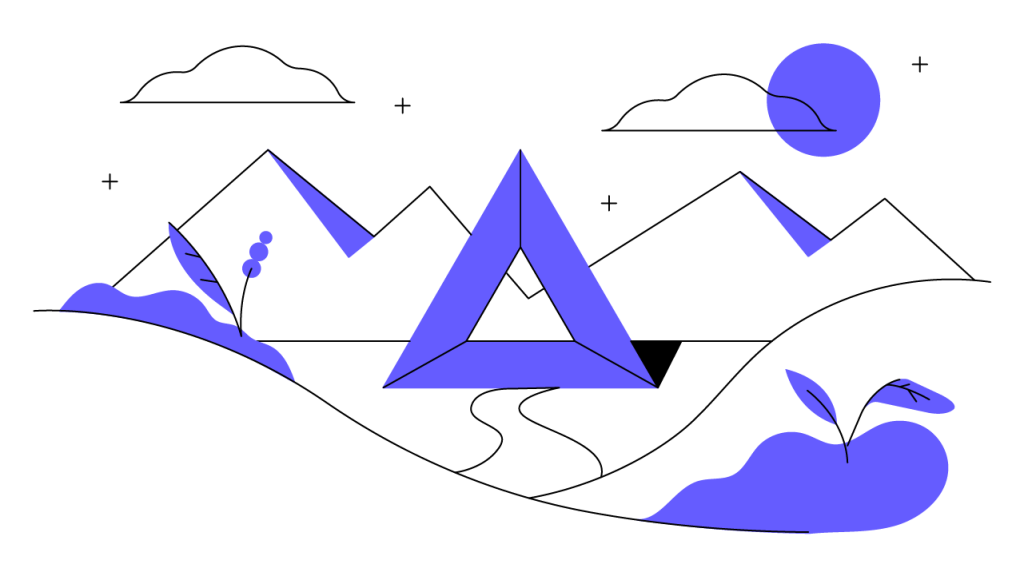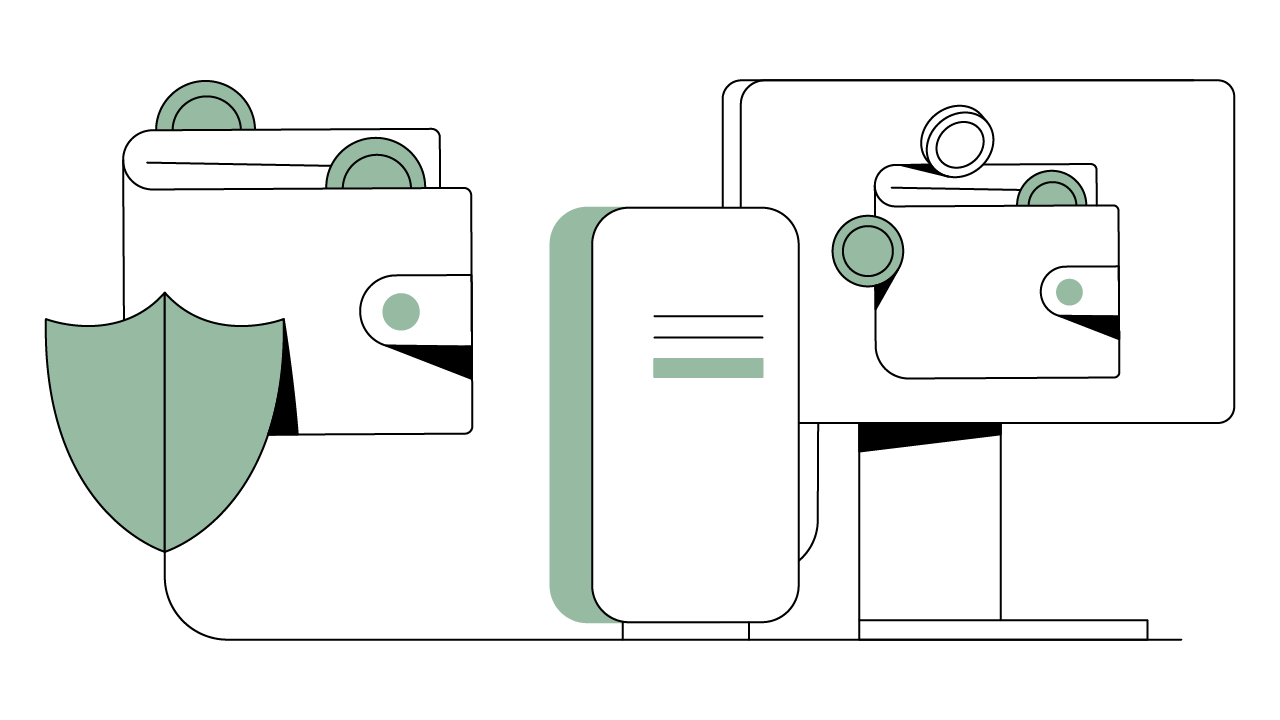Contents
Brave's Basic Attention Token (BAT): Ads that Pay You
No one is immune from being blasted by ads while trying to browse the internet. Read how Brave is using BAT to improve the digital ad status quo for all users.
By Brendan Eich, Co-Founder & CEO, Brave Software and the Basic Attention Token
Updated November 2, 2023 • 4 min read

Summary
In an effort to foster transparency and privacy in the digital advertising industry, Brave Software created the Brave web browser. This innovative browser not only blocks the third-party ads and trackers you’ve had to put up with in the past, but also replaces them with a transparent ledger system that measures your attention, and proportionately rewards you and your favorite publishers. Basic Attention Token (BAT) is a digital advertising token that operates on the Ethereum blockchain and fuels Brave’s efforts to provide a better browsing experience for all parties involved: users, publishers, and advertisers.
Problems With the State of Digital Advertising
Digital advertisements are something we all encounter while browsing the internet. While ads are commonplace, they are often implemented at the expense of the user. Ads track users across multiple devices, collect private data, share user information with third parties, and more — digital advertising is a cluttered, underregulated landscape.
The digital advertising industry faces a variety of challenges that can result in a lose-lose-lose situation for users, publishers, and advertisers.
First, if you are a user, you pretty much always have a suboptimal user experience. While browsing the web, you get bombarded with advertisements that increase load time, drain battery life, collect personal data with trackers, and can even include malware (malicious software). Many people install ad-blocking software on their computers and mobile devices to combat the overwhelming volume of ads.
Then come the publishers. The digital advertising industry is dominated by two giants: Google and Facebook. As of 2020, these two alone received 72% of all advertising spending and accounted for 99% of all growth. But, they are still susceptible to ad-blockers, fraud, and malicious bots. Recently, overall revenue for publishers has been down as much as 66%. Google and Facebook are also ad-tech providers, creating deep conflicts of interest across the ecosystem.
Lastly, advertisers themselves are spending lots of money on advertising that is not working as well as it could be because of fraud, inefficient ad targeting, and users simply ignoring ads. Brave believes there’s a better way.
Blockchain-Based Advertising With Brave Browser Rewards
Brave’s new approach, blockchain-based digital advertising, seeks to improve upon the status quo. It relies on a transparent, decentralized, and private ad exchange. Steadily gaining popularity, the Brave browser boasts more than 20 million monthly users and more than 960,000 verified publishers and creators as of December 2020.
When using the Brave browser, users opt-in to an inclusive and rewarding advertising program that is attention-based. Users are shown privacy-preserving advertisements that they can choose to pay attention to (or ignore), and in exchange are rewarded with the Basic Attention Token (BAT) accordingly via Brave Rewards. The Brave web browser uses advanced algorithms (based on time and total content viewed) to measure user attention. The advertisements are secure and anonymous. Brave and its partners do not harvest personal data and they don’t track users. Users can also use their BAT tokens to reward their favorite publishers for creating great content.
The end result of the Brave ecosystem is a better ad placement experience for advertisers, a more efficient experience for publishers, and a more pleasant experience for users — who view less frequent and more relevant ads that they can be rewarded for paying attention to.
Basic Attention Token in the Brave Browser Ecosystem
BAT fuels the Brave ecosystem and is awarded by anonymously monitoring a user’s attention in the active tab of the Brave web browser, securely and on-device. BAT is an Ethereum-based ERC-20 token that enables users to become active participants in the advertising and publishing economy. The total token supply is limited to 1.5 billion BAT. 1 billion BAT are now in circulation, while the rest are reserved for development and user grants. Once the total BAT User Growth Pool is depleted, no more BAT tokens will be created — neither through staking (Proof of Stake) nor through mining (Proof of Work) methods common with other tokens.
BAT is deployed via smart contracts issued directly by the advertiser. These smart contracts give publishers BAT according to the measured attention of users. A portion of the BAT included in the smart contract is also allocated for users who view the ad, thus triggering the BAT to be delivered. Users receive BAT tokens in their Brave Rewards Wallet. Users can then donate BAT back to their favorite publishers, use them within the ecosystem, or move them to an external wallet address.
Brave plans on implementing more widespread support for the BAT system beyond Brave’s own browser to other leading third-party web browsers. Also envisioned are more uses for BAT micropayments, such as the ability to:
purchase digital goods
access premium content (in lieu of a subscription-based model)
unlock the right to post comments on certain content
leverage BAT tokens as collateral to upvote or downvote on comments
incorporate gaming rewards in video games and apps
extend Brave functionality beyond Brave’s browser to integrate with leading third-party web browsers
In October of 2019, Brave announced a partnership with Uphold, a digital money platform, to provide a gateway in and out of the Brave Rewards Wallet in the Brave ecosystem. This development allows users to earn BAT for their attention to ads inside the Brave browser, and then transfer the rewards to an external wallet rather than exclusively keeping them in the Brave ecosystem. Conversely, users also now have the ability to fund their Brave Rewards Wallet with BAT via Uphold to further support the publishers and content creators of their choosing.
In August of 2020, Brave partnered with Gemini to create a Gemini Trading Widget within the Brave browser that allows users to buy, sell, and store crypto; view their Gemini account balances; and access their deposit addresses without leaving the Brave ecosystem. In addition, Brave-verified content creators can use the Gemini Creator Wallet as their Brave Rewards wallet, allowing them to easily manage their earnings.
Cryptopedia does not guarantee the reliability of the Site content and shall not be held liable for any errors, omissions, or inaccuracies. The opinions and views expressed in any Cryptopedia article are solely those of the author(s) and do not reflect the opinions of Gemini or its management. The information provided on the Site is for informational purposes only, and it does not constitute an endorsement of any of the products and services discussed or investment, financial, or trading advice. A qualified professional should be consulted prior to making financial decisions. Please visit our Cryptopedia Site Policy to learn more.

Author
Brendan Eich
Co-Founder & CEO, Brave Software and the Basic Attention Token
Brendan Eich is the co-founder and CEO of Brave Software and the Basic Attention Token. Eich previously served as CTO, then CEO of the Mozilla Corporation. Prior to that, he co-founded the Mozilla project and foundation. While at Mozilla, Eich helped launch the award-winning Firefox web browser. Eich is also the inventor of JavaScript, the Internet's most widely used programming language.
Is this article helpful?


